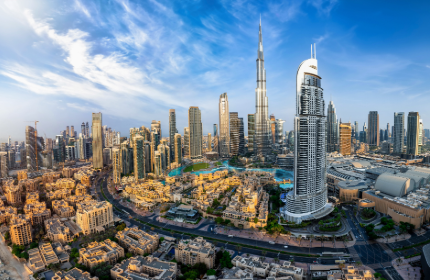‘Falling property prices make Dubai mature real estate market’ – Guardian Nigeria
 FALLING property prices in Dubai are not totally bad news as it will make the emirate’s real estate market more mature, a new analysis report says.
FALLING property prices in Dubai are not totally bad news as it will make the emirate’s real estate market more mature, a new analysis report says.
The report from international real estate firm Knight Frank explains how over the past decade, Dubai has been on a real estate rollercoaster ride of boom, crash and recovery.

Buy/sell, rent/lease residential &
commercials real estate properties.
Indeed, property values halved between 2008 and 2010, but then rose phoenix like from the desert to regain most of their losses by 2014. However, the rallying prices of 2013 and 2014 set off the alarm so authorities had to react to prevent a market boom and crash cycle.
At this point Dubai’s market regulators, wielding mortgage caps and a doubling of transaction fees, stepped in to reduce speculation and the report points out that this combined with other factors such as deteriorating oil prices, currency fluctuations and a series of economic and political failures in different parts of world, means lower levels of demand from most regional and international group of buyers looking to purchase properties in Dubai.
On top of this there has been an excess of new build supply and the net impact has been a 12 per cent fall in mainstream property prices over the 12 months to June 2015.
“Nevertheless, falling prices are not totally bad news. With the government stepping in to curb speculative activity through tightening mortgage regulations and capping price increments, it is evident that lessons has been learnt from the 2008 downturn and the market is heading steadily to be more mature and better controlled,” says the report.
“More interestingly, with price falls continuing to outpace rental value declines, initial yields are rising. Reaching more than 7per cent in rental yields in the mainstream property segment, Dubai still stands tall among real estate capitals in the world for investor seeking income generating properties,’ it adds.
It also points out that the rate of decline in prime residential prices of 4.5per cent in the year to June 2015 was smaller compared to the mainstream segment while in sub-markets, the picture is a bit more positive as well. In demand areas are mostly in the prime segment including villas, townhouses and apartments in the Palm, Emirates Hills, Dubai Marina and Downtown for example.
“Even during the 2008 downturn, prime properties saw lower levels of declines compared to less established areas,” Diaa Noufal, of the MENA research unit at Knight Frank Dubai office.
The report also looks at the wider region. In Qatar foreigners have been able to buy property since 2004, although restricted to a few specific areas. Demand has been rising, albeit with a slowdown this year following the oil price crash and regional instability. Buyers tend to be residents of countries within the Gulf Cooperation Council, although the number of European buyers is rising.
Demand for Oman property from across the Middle East and from India and Pakistan has risen in recent years. Knight Frank says this is partly due to the potential for some buyers to secure residency following purchase, but also from relatively strong annual investment returns of about 6per cent.
In Saudi Arabia the property market has been seen evolving rapidly over the last decade with mega scale projects by Dubai experienced developers such as Emaar and Limitless.
Abu Dhabi is where the Dubai model is most evident, albeit on a smaller scale. Transaction volumes there have fallen in the past year, but prices have been relatively resilient, rising by about 5per cent in the 12 months to June 2015. As with Dubai, the rules on mortgage caps also apply to reduce the risk of bumpy cycles, the report points out.
Looking ahead, the report says that despite the rise of alternative regional markets for international buyers, Dubai and Abu Dhabi will remain the focus for most activity in the region. Investors, developers and governments are counting on the potential economic growth in both cities led by a forecasted 20% increase in the UAE population by 2030.
Positive economic factors are on the horizon including Dubai becoming an even bigger international airport hub, the port at Jebel Ali likely to become the world’s largest in the next 15 years, and Dubai emerging as China’s logistical hub for the Middle East and Africa.
There is also the Expo 2020 in Dubai and the massive economic activity linked to it, so demand is seen gathering momentum in a steady pace over the next seven years and beyond.
“A more mature market, a better investment return, and a highly connected city all point to a positive future of the property sector in Dubai,” the report concludes.

